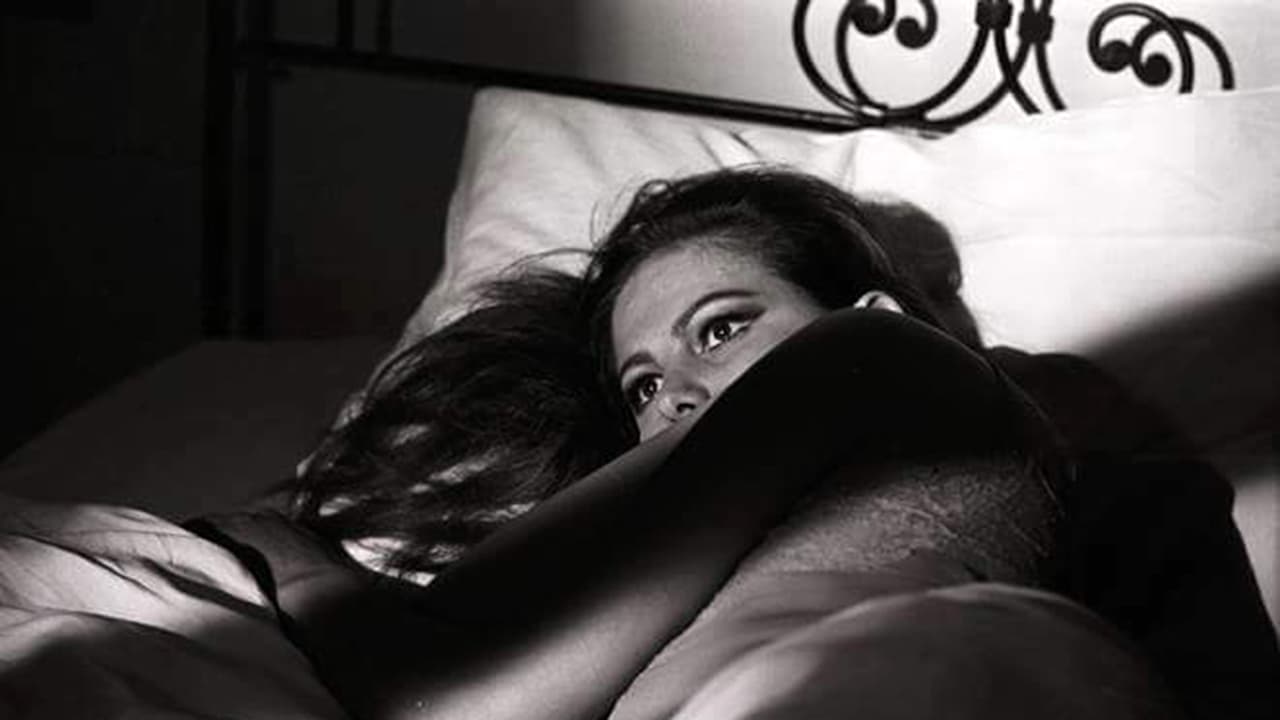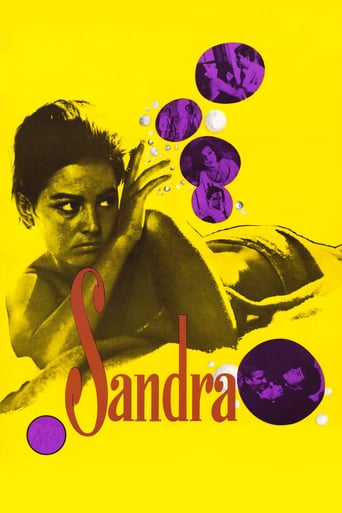Protraph
Lack of good storyline.
Aedonerre
I gave this film a 9 out of 10, because it was exactly what I expected it to be.
Mehdi Hoffman
There's a more than satisfactory amount of boom-boom in the movie's trim running time.
Guillelmina
The film's masterful storytelling did its job. The message was clear. No need to overdo.
Scott44
***User-reviewer bennyraldak ("Forbidden desire", bennyraldak from Netherlands, 4 September 2009) sees "Sandra" as being focused on Claudia Cardinale's character's demons. Ilpo Hirvonen ("The decay of an aristocratic family", Ilpo Hirvonen from Finland, 21 September 2010) has a good general summary.*** Luchino Visconti's Sandra (1965), is a puzzling but splendorous visual treat that depicts incest, homo-eroticism, madness and collaboration with the Nazis. Its fairly slow pacing and reluctance to make obvious useful information will challenge those who spend hours a day gazing down at their QWERTY devices. However, "Sandra" is very rich and satisfying; it is flawlessly served up by the great Visconti. (I like it more than "The Leopard.")A modernized retelling of the Greek myth Electra, an attractive, upper-class, socialite couple (Claudia Cardinale in the eponymous role, Michael Craig as her husband Andrew) return to the mansion of Sandra's youth (which she was forced to flee), to attend a small ceremony honoring her father, who was murdered by the Nazis at a concentration camp. When she is reunited with her unstable brother, Gianni (Jean Sorel), the physical connection between them is made very obvious. Their closer-than-normal relationship is never a secret to the audience, but revealing it is a big concern to Andrew and other observers, such as Sandra's barrister stepfather Gilardini (Renzo Ricci). The perpetually nervous Gilardini and Sandra's clinically insane mother (Marie Bell) may also have collaborated with the Nazis by betraying Sandra's father, creating an unusual conflict of pairs.Shot in high-contrast Black and White, Visconti's skill at shooting his photogenic cast in tight quarters is evident. Because the English translation of the film is somewhat talky, it helps to develop the skill of quickly reading the subtitles in order to enjoy Visconti's work. It is amazing how precise and detailed the imagery is. The scenes between the anguished brother and steely sister are frequently filled with erotic tension. Visconti's trademark homo-eroticism is also present, but to a smaller degree.One of the more interesting characters is Sandra's "first love" who is now a physician. He seems to personify not just a mixture of Sandra's husband and her brother, but also the Nazi collaborator Gilardini. At least, that's my interpretation of the final image.Visconti's depiction of a decaying aristocratic family has great depth, and fans of the great director will not be disappointed with it.
Ilpo Hirvonen
Luchino Visconti often dealt with the disintegration of family in his films; The Damed, The Leopard, Conversation Piece.. The stories were tragedies and only in Bellissima (1951) the family sticked together in the end. Sandra (Vaghe stelle dell'Orsa...) is also a film about this, but specifically about an aristocratic family full of betrayal, decay and immorality.Incest is a leading theme in Sandra; we are given clues about it throughout the film, but not a definite proof. The affair of the siblings remains in the shadows and there's something odd in the relationships between the children and the parents. Visconti first approaches this controversial theme calmly, showing it as a small thing - we are not told much about it. But then he increases it to enormous dimensions.Luchino Visconti sets this story to a dying city around a aristocratic class that is dying out. Great tragedies, misfortunes and decay lead this class to extinction. Already in Senso Visconti achieved an aesthetic revolution, but he continues this in Sandra with a political and ethic revolution. Sandra is not the easiest film by Visconti and many people in the theater seemed to neglect it. In the beginning I found it a little unreachable and absurd but it grew up to be a beautiful allegorical description of the decay of an aristocratic family.
Claudio Carvalho
After a farewell party, Sandra Dawson (Claudia Cardinale) and her American husband Andrew Dawson (Michael Craig) travel to her hometown in the province of Volterra for a homage of the locals to her father, a prominent scientist that died in the concentration camp of Auschwitz. The couple is welcomed by the maid Fosca (Amalia Troiani), and Andrew becomes fascinated with the house. Sandra has issues with her stepfather Pietro Formari (Fred Williams) and her insane mother (Marie Bell) and misses her brother Gianni Wald-Luzzati (Jean Sorel), who is an aspirant writer. When Gianni appears in the house out of the blue, Andrew unravels a shadowy secret from the past of the siblings.The unknown "Vaghe Stelle dell'Orsa..." is another great movie of this artist called Luchino Visconti. The plot about incestuous relationship and family issues in the hands of another director could have become a melodramatic soap-opera. But Visconti explores the sensuality and beauty of Claudia Cardinale to deliver an intriguing and quite erotic family drama without any redemption. The set decoration, as usual, is another piece of art, supported by a classy music score. My vote is eight.Title (Brazil): Not Available
inoz
This movie made very little sense to me. First of all, the subtitles (I'm not a fluent Italian) were written in white text over a frequently white background. The actors were very good, especially Claudia Cardinale as Sandra. The storyline itself, however, was a bit odd.First of all, Sandra and Gianni had some strange preoccupation with being nearly naked. That didn't bother me, though. What bothered me was the fact that the storyline started at one point and never progressed. At the end of the movie, I knew little more than I did at the beginning. For example, what exactly happened with Sandra's parents and Giraldini and Pietro? Nothing was explained.However, the movie was strangely captivating. I wanted to get up screaming 'WHAT'S GOING ON???' (and at some point, I probably did) but I never fund myself trying to escape the room. I kept wanting to know what was going on... I never did.Although this comment may seem confusing, I would still recommend this movie. It's good for anyone who wants to know what Italian cinema is all about. Nearly all old Italian movies I've seen are the same.They don't end. They just stop. 'Sandra' follows this standard.

